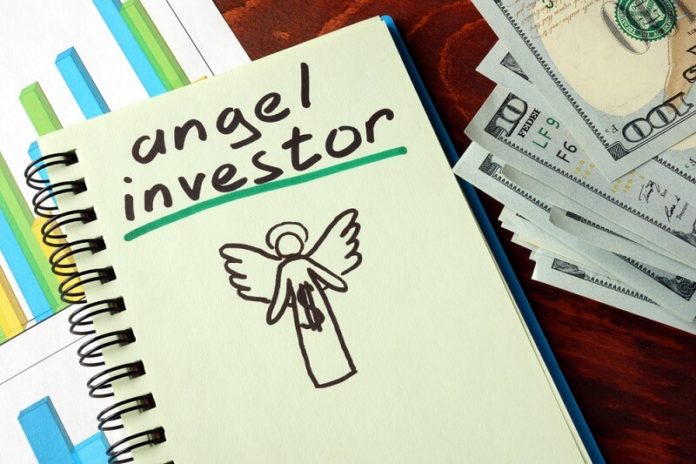For startups, a great alternative to venture capital is angel funding. A silver lining over the past year is large Angel investment groups like Keiretsu Forum have pivoted online, which means existing investors no matter their home geography can access and evaluate any of the deals that go through the network. Member onboarding, due diligence, live presentations, and member meetings are now all conducted online.
If thinking about working with angel investors, here are things you should understand about the process:
1. Prepare for Virtual Fundraising
In a post-Covid-19 pandemic world capital must be raised virtually. The biggest challenge for entrepreneurs is that investments are made without ever meeting potential investors face-to-face. There is minimal eye contact, and little body language—which is the language of funding—in a Zoom meeting. The goal is selling the upside potential and creating interest.
Try and get into the mind of the angel, who will be evaluating you and asking themselves: Who are you? Why would I want to be involved and work with you? Do I support the journey, the mission and the impact? Is the technology compelling? How vast is the market opportunity? All those questions must be addressed during the pitch presentation.
Fundraising as an ongoing process, with presentation and speaking skills evolving over the course of the campaign. Constantly evaluate your own presentation: Is the audience-market quickly defined? What is the pitch about? Why is it being pitched? Who will benefit from it?
Probably the most effective technique for improving those skills is to watch entrepreneurs with similar stage companies deliver pitches. Presenting to 50, 60 or hundreds of investors is no small task. Before and during the process, put your ego aside, and attend a few online investor forums to see how the best do it.
A good pitch coach is someone who can simplify the process and make it less daunting. In addition to the pitch itself, not to be underestimated is honing the presentation skills that enable the entrepreneur to deliver an engaging and compelling presentation.
2. Angels Invest in Things they Know
Angels gravitate toward opportunities in the industries they have direct experience in, and the insights they can share with founders on how to successfully grow companies within those markets is invaluable. When courting angels as potential investors, take advantage of this! Relationships between entrepreneurs and Angels can get started quickly and can be very hands-on, with Angels oftentimes embedded within the company’s extended management and advisory network. Take their expertise, with funding taking place within an exciting and collaborative environment.
Once an entrepreneur goes through the process of securing Angel funding, they are part of a tight community. By example, approximately half the entrepreneurs that present to Keiretsu Forum are members of the group. Many are Angels and entrepreneurs that have built and sold several companies.
3. Due Diligence is the Keyholder
Due diligence is the key to a successful funding round. The process can be lengthy, taking upwards of 80 to 100 hours over six to eight weeks, but once completed the company is now in a position to syndicate and receive further capital.
Typically, in an angel group setting, companies initially pitch first to a deal screening committee who determines if the opportunity is worthy of a full investor presentation. If there is interest, the due diligence process begins. Keiretsu Forum deploys on average 50 to 60 members that evaluate the opportunities and vote on inviting opportunities forward to the next step.
Tight screening should be a confidence builder for both angel and entrepreneur. By way of example, Keiretsu Forum members back more than 80% of the companies that go through the process. An affiliated fund, Keiretsu Capital, will often invest alongside the members backing the company. This process gets repeated when the deal is syndicated across the network that includes numerous additional angel groups. At the end of the cycle there should be 50-70 interested angels to close capital from.
4. Protect IP
Most Angel groups will not sign NDAs to conduct due diligence. It’s critical to have a proper patent strategy for protecting key Intellectual Property (IP). That said, due diligence mentioned above plays a large hand in formulating that strategy, ensuring there is a good framework in place for the company to document a sustainable differentiation, with the freedom to operate and prevent competition from infringing on their patents. Most Angel groups have IP attorneys who are members and conduct those reviews. Be careful about what you put in writing—angels should be able understand what is going on with your business without you disclosing important assets.
5. Family Offices Deliver Patient Backing
A new trend within angel investing that entrepreneurs need to know about is the alignment between Family Offices and Angel groups. It is the future of entrepreneurial finance. That’s a bold statement, but consider that Family Offices are in the midst of a huge transfer of wealth (approximately $20 trillion) to the next generation of family members eager to make impact and diversity investments. More than one-half of the companies funded through Keiretsu Capital, which invests alongside Keiretsu Forum, are now also funded by Family Offices.
Unlike VCs, Family Offices are geared toward investing over a longer horizon and do not have an incentive to overly dilute the companies they invest in. Family Office investment adds a substantial balance sheet for fueling growth, and a sense of financial confidence for anticipated tough stretches.
The symbiotic relationship between the Angel investors that have the entrepreneurial expertise and the Family Offices that have the wealth that should most excite female entrepreneurs seeking to raise capital.
Brianna McDonald is president, Keiretsu Forum Northwest, the largest chapter of Keiretsu Forum. Keiretsu Forum is the world’s biggest angel investor network, ranked by Pitchbook in 2020 as the U.S. Region’s #1 and # 2 Most Active Late and Early Stage investors.
Angel investor stock photo by Vitalii Vodolazskyi/Shutterstock







